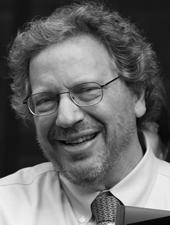Yoon, Seungtai, Munoz, Adriana, Yamrom, Boris, Lee, Yoon-Ha, Andrews, Peter, Marks, Steven, Wang, Zihua, Reeves, Catherine, Winterkorn, Lara, Krieger, Abba M, Buja, Andreas, Pradhan, Kith, Ronemus, Michael, Baldwin, Kristin K, Levy, Dan, Wigler, Michael, Iossifov, Ivan (September 2021) Rates of contributory de novo mutation in high and low-risk autism families. Communications Biology, 4 (1). p. 1026. ISSN 2399-3642
|
PDF
2021.Yoon.low_risk_autism_families.pdf Download (874kB) |
Abstract
Autism arises in high and low-risk families. De novo mutation contributes to autism incidence in low-risk families as there is a higher incidence in the affected of the simplex families than in their unaffected siblings. But the extent of contribution in low-risk families cannot be determined solely from simplex families as they are a mixture of low and high-risk. The rate of de novo mutation in nearly pure populations of high-risk families, the multiplex families, has not previously been rigorously determined. Moreover, rates of de novo mutation have been underestimated from studies based on low resolution microarrays and whole exome sequencing. Here we report on findings from whole genome sequence (WGS) of both simplex families from the Simons Simplex Collection (SSC) and multiplex families from the Autism Genetic Resource Exchange (AGRE). After removing the multiplex samples with excessive cell-line genetic drift, we find that the contribution of de novo mutation in multiplex is significantly smaller than the contribution in simplex. We use WGS to provide high resolution CNV profiles and to analyze more than coding regions, and revise upward the rate in simplex autism due to an excess of de novo events targeting introns. Based on this study, we now estimate that de novo events contribute to 52-67% of cases of autism arising from low risk families, and 30-39% of cases of all autism.
Actions (login required)
 |
Administrator's edit/view item |










